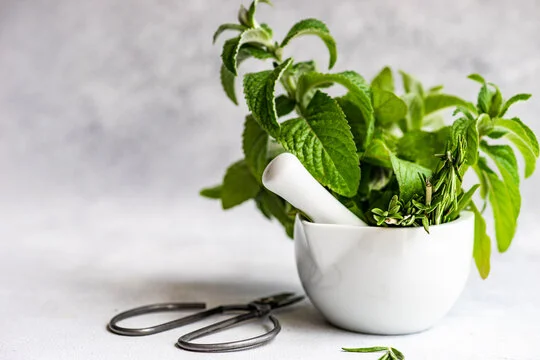
Herbs have been a cornerstone of natural medicine for centuries, playing a vital role in our health and well-being. From boosting immunity to aiding digestion, these natural wonders offer a myriad of benefits. But how exactly can herbs improve your health? Let’s delve into the world of herbal medicine to uncover the secrets behind these potent plants.
The Science behind Herbal Medicine
Herbs are packed with active compounds such as alkaloids, flavonoids, and essential oils, which contribute to their medicinal properties. These compounds interact with our body in various ways, helping to regulate bodily functions and promote overall health. Scientific studies have shown that herbs can have profound effects on our physiology, making them a valuable addition to any health regimen.
Herbs for Boosting Immunity
Echinacea: Known for its immune-boosting properties, echinacea can help reduce the duration of colds and flu. It’s rich in antioxidants and has anti-inflammatory effects, making it a powerful ally against infections.
Elderberry: This berry has packed with vitamins A and C, which are essential for a healthy immune system. Elderberry syrup has often used to prevent and treat respiratory infections.
Herbs for Digestive Health
Peppermint: Peppermint tea is a go-to remedy for digestive issues. It helps relax the digestive tract muscles, reducing symptoms of irritable bowel syndrome (IBS) and bloating.
Ginger: Ginger is well-known for its ability to combat nausea and improve digestion. Its anti-inflammatory properties also make it beneficial for gut health.
Herbs for Mental Health
St. John’s Wort: This herb has commonly used to treat mild to moderate depression. It works by increasing the levels of serotonin in the brain, which can help improve mood and alleviate anxiety.
Ginkgo Biloba: Known for its cognitive-enhancing properties, ginkgo biloba can help improve memory and concentration by increasing blood flow to the brain.
Herbs for Skin Health
Aloe vera is famous for its soothing and healing properties. It’s often used to treat burns, cuts, and other skin conditions due to its anti-inflammatory and moisturizing effects. Calendula, or marigold, has antimicrobial and anti-inflammatory properties. It’s commonly used in creams and ointments to promote wound healing and soothe irritated skin.
Herbs for Respiratory Health
This herb has used for centuries to treat respiratory ailments. It helps soothe sore throats, reduce coughs, and support lung health. Thyme has antiseptic properties that make it effective against respiratory infections. It’s often used in teas and inhalations to relieve symptoms of bronchitis and asthma.
Cardiovascular Health

Hawthorn is known for its heart-healthy benefits. It helps improve blood circulation, reduce blood pressure, and strengthen the heart muscle. Garlic is a powerhouse for cardiovascular health. It’s shown to lower cholesterol levels, reduce blood pressure, and prevent the buildup of arterial plaque.
Anti-Inflammatory Purposes
Curcumin, the active compound in turmeric, has powerful anti-inflammatory effects. It’s beneficial for conditions like arthritis and other inflammatory diseases. Also known as frankincense, boswellia is effective in reducing inflammation and pain, especially in conditions like osteoarthritis and rheumatoid arthritis.
Weight Management
Green tea has rich in antioxidants and has shown to boost metabolism and promote fat burning, making it a popular choice for weight management. This tropical fruit extract has known for its weight loss properties. It helps suppress appetite and inhibit fat production in the body.
Hormonal Balance
Often used to manage menopause symptoms, black cohosh can help balance hormones and reduce hot flashes and mood swings. This herb has known for its ability to regulate menstrual cycles and alleviate symptoms of PMS by balancing hormone levels.
Antioxidant Support
Rosemary is a powerful antioxidant that helps protect cells from damage caused by free radicals. It’s also beneficial for brain health and memory. Oregano is not just a culinary herb; it’s also rich in antioxidants and has antimicrobial properties that support overall health.
How to Incorporate Herbs into Your Diet
Incorporating herbs into your daily diet is easier than you might think. You can add fresh or dried herbs to your meals for an extra burst of flavor and health benefits. Herbal teas and infusions are another great way to enjoy the benefits of herbs. For instance, a cup of chamomile tea before bed can help you relax and improve your sleep quality.
Precautions and Safety Tips
While herbs are generally safe, it’s essential to use them correctly to avoid potential side effects. Always start with small amounts and gradually increase the dosage. It’s also crucial to consult with a healthcare provider, especially if you’re pregnant, nursing, or taking any medications, as some herbs can interact with conventional drugs.
Conclusion
Herbs offer a natural and holistic approach to health and wellness. From boosting your immune system to improving mental health, these potent plants have something to offer everyone. So why not explore the world of herbal medicine and see how these natural remedies can enhance your well-being?